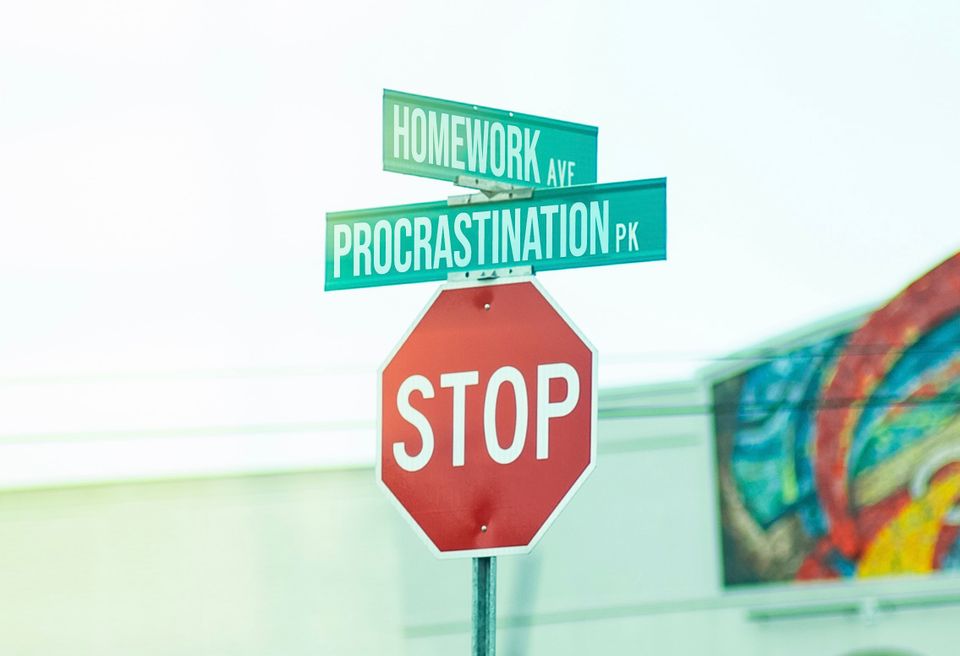Time management from a chronic procrastinator

I think one of my main weaknesses is my propensity to put things off indefinitely, or until the last minute if it absolutely needs to be done. Two months ago, I wrote a post about how I hadn't bought new eyeglasses or bath towels. I mentioned putting both items in my schedule. I still haven't done either of these things, and they're still sitting at the top of my Reminders app.
I have yet to discover a good way to fix the above issue, but I think I've figured out an explanation for why the problem exists. I'm terrible at being accountable to myself, though I seem to be quite good about being accountable to others. I'll explain.
When I need to do something that no one else except me will care about - and I care little about it myself - it won't get done. Buying new bath towels, for example.
However, when I need to do something that someone else will care about deeply, I find a way to get it done. Finalizing an application essay for a student's application that's due next week, for example.
I think people think and work in different ways, so perhaps what's true for me will not be true for others. That said, I've found that even when I'm motivated and actively doing productive things on a particular day, there are limits to how much I can do (which I think would apply to most people). In situations when I'm in danger of being overwhelmed with tasks and/or obligations, I have a few ways of managing things that I'll share in this post.
Do one thing at a time
At least for me, it's literally impossible to do two things that require my brain simultaneously. For example, I've tried on multiple occasions to watch an e-sports match while working - within minutes, I'm either watching the match or I've closed it to focus on what I actually need to do.
The human mind works in series, not in parallel. Multitasking in the true sense (doing two or more things at once) is a myth.
Don't overschedule
I always err on the side of leaving too much time for something. When I schedule a face-to-face meeting, I normally block off two hours. Even on days when I'm extremely busy, I'll cheat only slightly by blocking off 1.5 hours.
I've seen others schedule 15-minute or half-hour meetings and be constantly late for their subsequent meetings. I'm left with the impression that they're always rushing somewhere, and when I'm on the receiving end of their lateness, I invariably get annoyed.
Instead, I find it much less stressful to purposefully schedule extra time per meeting. Sometimes, meetings do go long - but even if they don't, I've found the extra time useful for checking missed WeChat messages, preparing for my subsequent meetings, or just getting a cup of coffee to recharge.
Three major tasks per day
Segmenting a day into morning, afternoon, and evening has worked very well for me. Not counting meetings or minor tasks such as emails or phone calls, I've found that I can finish a maximum of three "major" deliverables each day.
An example of a major task would be my daily blog post, since I need about two hours to write it. Normally, I'm unable to get anything else of significance done in the evening these days. (Sometimes it's possible to squeeze in a run, a short phone call, or an episode on Netflix.)
Afternoons may seem longer and thus potentially more productive, but I'm always extremely drowsy after lunch - so I don't get as much done in as little time as mornings or afternoons. Your mileage may vary if this isn't true for you.
A corollary of this principle is to not overload your mind by thinking about too many major tasks at once. There is no value in thinking about five separate things when we can only complete one in the next few hours and a maximum of three in one day.
Select three of the highest priority and commit to working on them for the day. Then select one from among the three and commit to focusing on it completely for the next 2-3 hours. The narrower our focus, the more quickly and effectively we will complete our most important tasks at hand - all while experiencing less stress.




